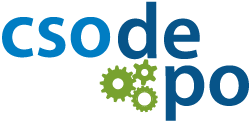Social Innovation Camp on Healthcare
How can we make our healthcare services more user-oriented? How can we better connect patients with professional expertise, or carers with communities in need? Can we better make use of advances in technology? Or take advantage of other innovationsrelated to Big Data or the Internet of Things? What effect might social networks have if they were truly applied to the building of solutions, the sharing of expertise, or the provision of feedback mechanisms?
Kolba Lab is once again opening its doors toyou, the user. We want to find out your ideas for healthcare. Our incubator is a platform for you to test your idea, see what works and what doesn’t, and to grow it into something special: a social start-up, enterprise, web platform, pop-up, or something completely different. You decide, we support!
So if you have an idea that could address one of these big issues, or if you are already working on these issues and you would like to increase your impact, Kolba would love to work with you. The ideas can be submitted through online form. If you don't want to suggest an idea, but will volunteer to help participants with your professional skills and education please register here.
The deadline for idea submissions and participation registration is June 15th

How important is healthcare to you? If you’re lucky, you don’t think about this question very often. If you’re not, you think about it a lot. One way or another, all of us, at some point in our lives, will spend time pondering issues of health and wellbeing. A broken bone, bad toothache, sick relatives, maybe an undiagnosed illness, or just a new healthy regime after a particularly fattening Christmas period: questions of health are an inevitable part of what it means to be alive.
In short, our healthcare systems are our safety nets. Done right, they allow us to minimize our concerns and worries. Done badly, they drain our resources and limit healthcare access to the richest in society. Yet around the world the free flow of healthcare solutions, treatments and expertise that these systems provide is under threat from declining budgets, rising costs, and ageing populations.
It is in this context that new, innovative solutions are being sought to fill the gaps and to help provide all people – regardless of social or economic status – access to quality healthcare. How can we make our healthcare services more user-oriented? How can we better connect patients with professional expertise, or carers with communities in need? Can we better make use of advances in technology? Or take advantage of other innovations related to Big Data or the Internet of Things? What effect might social networks have if they were truly applied to the building of solutions, the sharing of expertise, or the provision of feedback mechanisms?
Kolba Lab is once again opening its doors to you, the user. We want to find out your ideas for healthcare. Our incubator is a platform for you to test your idea, see what works and what doesn’t, and to grow it into something special: a social start-up, enterprise, web platform, pop-up, or something completely different. You decide, we support!
So if you have an idea that could address one of these big issues, or if you are already working on these issues and you would like to increase your impact, Kolba would love to work with you.
Our panel of judges will review the submissions and pick the best from the rest. The successful applicants, along with techies, designers and creatives, will be invited for a weekend to develop the selected ideas at Social Innovation Camp in July 2016. More info coming soon.
Looking for inspiration?
Try the fast idea generator. It is full of interesting ways to twist current approaches and generate creative ideas.
- MoSQuIT, a web platform that acts as a surveillance system to monitor outbreaks of infectious diseases, in this case Malaria.
- CenteringPregancy, a pregnancy support unit that brings users together to provide peer-to-peer support and learning to one another throughout their pregnancies
- Tyze, a social network that connects vulnerable people to formal and informal care networks
- WebGP, an online platform that users can use to diagnose themselves and determine whether or not they should see a doctor
